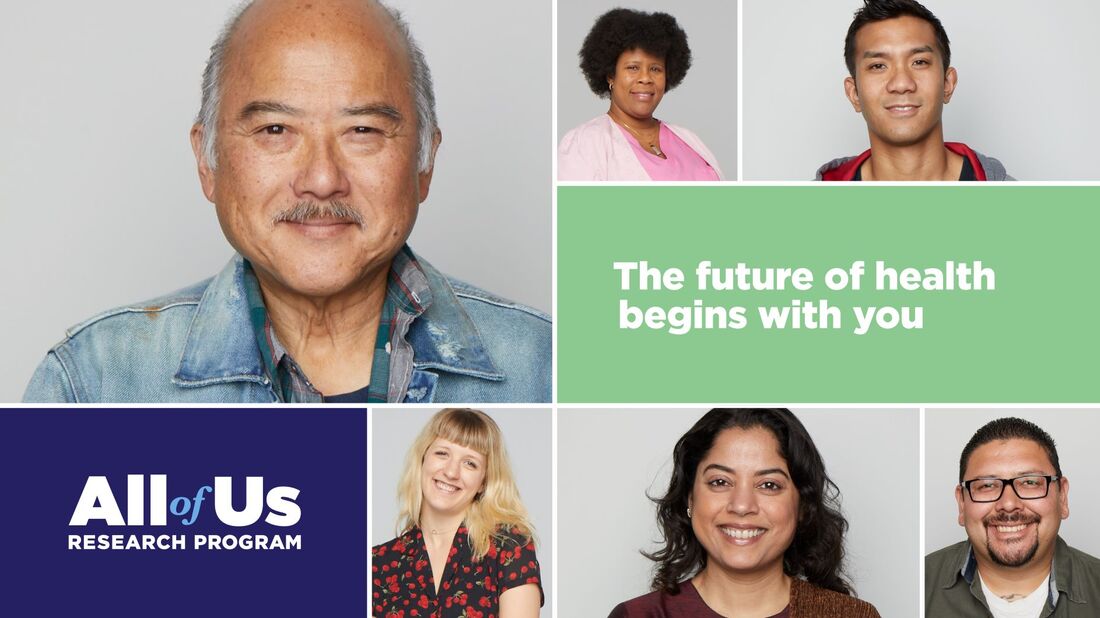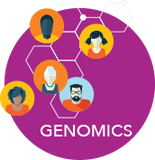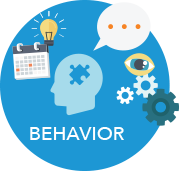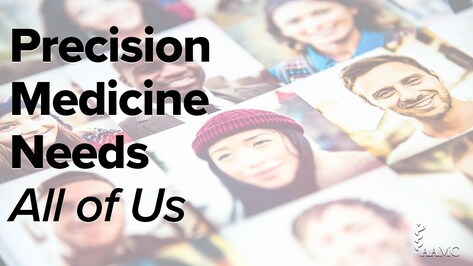It has been updated with new content and findings on August 15, 2019 and with new data and resources (linked at the end) on February 7, 2023.
The project has since been branded the All of Us Research Program and that title could not be more fitting. The goal of the program is to recruit 1 million individuals who will volunteer to provide their biological and health information in the form of medical records, genetic samples, and lifestyle data that is both self-reported and obtained from wearables (FitBit-like devices).
All of Us Seeks to Represent & Engage a Diverse Population
The All of Us program participants are to reflect the diversity of individuals living in the U.S. and are being treated as partners in the study. This concept of partnership speaks to the idea of participant engagement, an area Consuelo H. Wilkins, MD, MSCI, Executive Director of the Meharry-Vanderbilt Alliance and leader of the All of Us Research Program Engagement Core, knows quite a bit about. Engagement differs from recruitment in that its goal is to involve participants in the design, implementation, and oversight of the research, not just to enroll them in a study. Engagement is also a 2-way line of communication where research plans are transformed based on the perspectives of all those involved in it: researchers and participants.
Another aspect of how the community provides useful feedback on the All of Us program is in the form of community engagement studios, modeled on a similar program at Vanderbilt University. These engagement groups were held across the country and allowed individuals from the community to voice concerns or share their thoughts on various practices the program was planning to implement to recruit and interact with potential study participants. More than 70 studios were held in preparation for the nationwide rollout of All of Us on May 6, 2018.
Community Engagement Continues
The Engagement Core works closely with community partners across the U.S. to help host the community engagement studios in a manner that makes community members feel welcome. For example, the community organizations are asked for guidance on everything from the time of day the studio should be held to the location and what type of food should be ordered. There was one particularly memorable instance in Chicago where the Engagement Core staff had to bring a large amount of cash to purchase food at a cash-only restaurant recommended by an Asian community group. While a seemingly small thing, acts such as this engender trust between All of Us and its community partners because the partners can see that their opinions are being used to guide not just food but research and policy choices made by the national program. Changes coming out of these community engagement studio sessions have included making the language in participant materials easier to understand (use of less jargon and complex terms) as well as providing a small amount of monetary compensation to All of Us participants. Many potential participants saw the compensation, even if it was small, as evidence they and their time was being valued. Such changes emerging out of these studios can have a major impact on study participation (see, for example) and the Engagement Core expects it to be the case for the All of Us program as well.
So far, All of Us research participants have been “all in” to contribute to the program. Alecia Fair, DrPH, Research Assistant Professor with the Meharry-Vanderbilt Alliance, has been in the public health and health promotion/education field since 1992 and has never seen the degree of investment participants in the All of Us pilot program have displayed since it began in 2016.
Individuals have strong motivations for volunteering as participants. Many have loved ones who are sick or died prematurely from disease and hope their contribution to the program as a participant, and also as a voice of participants, will make a difference in the health of others. Generating a high level of individual involvement, investment, and trust in participants is critical as they can volunteer as much or as little information as they want to the program. In order for deeper insights and knowledge to be gleaned from the program, participants will need to be willing to share information from their electronic medical record, genetics, wearable devices, and self-reported daily lifestyle choices.
| The data collected in All of Us is not just for researchers. One important goal of the program is that all data collected from any participant will be provided back to the participant through useful insights. The Participant Technology Systems Center (PTSC) for All of Us is being administered by Vibrent Health, a digital health technology company headquartered in Fairfax, Virginia. |
Vibrent Health CEO Praduman Jain (PJ), spoke to the importance of returning value back to All of Us participants, a value that is above and beyond their own health data. Using the company’s Research Platform, Vibrent will develop useful insights from the large and diverse sets of data provided by the All of Us participants, ultimately enabling researchers and clinicians to more precisely predict, prevent, and treat a variety of health conditions.
Only through the critical buy-in of participants will a program as ambitious as All of Us succeed. Now over 15 months since the launch of the program, All of Us has recruited nearly 25% of its targeted 1 million participants: 243,000+ at last count (as of August 13, 2019). And you can help them reach their goal (see link to participate)!
In the end, the All of Us program hopes to set a precedent for how long-term, longitudinal, health and lifestyle research can take place in the 21st Century. No longer will participants in this type of research be passive subjects (often distrusting what is being done with their data) who provide (or don’t, or not truthfully) information and samples from which they never learn the insights obtained. Rather, participants will be partners in the research process, knowing their opinions and ideas matter and that their data is leading to new insights in which they are being informed.
In doing all this, All of Us leadership expects participants will feel more engaged and empowered: willing to provide an unprecedented amount of health data with the knowledge that it will lead to discoveries that truly benefit All of Us.
As of August 13, 2019: 180,000+ individuals have begun enrollment in the program with an ethnic distribution of: ~21% African American, ~18% Hispanic/Latino, & 47% Caucasian
80,000+ electronic health records and 188,000+ biosamples are currently in the system
FURTHER UPDATES:
As of February 6, 2023: 413,000+ individuals have begun enrollment in the program with an ethnic distribution of: ~18% African American, ~16% Hispanic/Latino, & 51% Caucasian
345,000+ electronic health records and 429,000+ biosamples are currently in the system
The All of Us Research Hub has an online Data Browser to view publicly-available data:
https://databrowser.researchallofus.org/
About the All of Us Research Program
All of Us Publications
New England Journal of Medicine special report on the project (published 8/15/19)
Want to take part? Enroll in All of Us here: https://www.joinallofus.org/en
Have questions about the program? See FAQs here.
Want to engage your community in the program? See resources here.
Read more about Engagement and the All of Us Program Here:
https://catalyst.nejm.org/precision-medicine-initiative-everyone/









 RSS Feed
RSS Feed